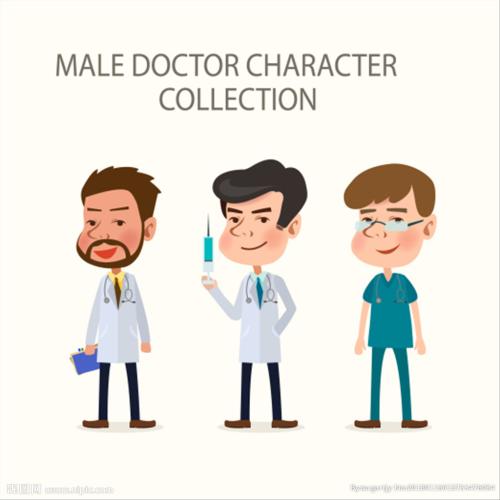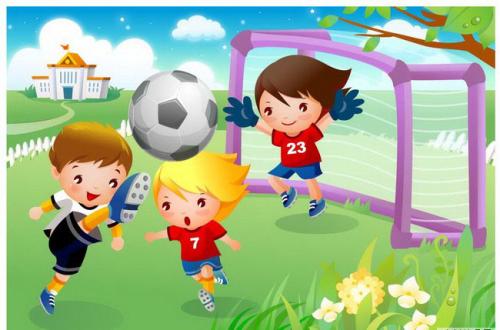









发布日期:2020-10-28
制定者:
出处:
 立即收藏
立即收藏

In deciding on the use of medication for your child, the following factors may be helpful to consider:
* What other interventions have already been tried?
Some children with ADHD can have their symptoms effectively managed via other means including appropriate behavioral and educational interventions. If you are concerned about using medication with your child, make sure that non-medical interventions have been tried first. This is an important issue to discuss with your child's physician. It is important to be aware, however, that no form of treatment has been shown to be as effective as stimulant medication for the majority of children with ADHD.

* How much difficulty are my child's symptoms actually creating?
The degree of impairment in academic, social, and behavioral functioning caused by ADHD can vary substantially. If the impairment experienced by your child is on the modest side, medication can be less essential than when the impairment is great.
* What is my child's attitude towards taking medication?
It is very important to discuss the rational for using medication with the child. The child needs to know why it is being suggested and how it can be helpful. This is especially true for older children and adolescents, who may have concerns about being teased should their peers find out that they are taking medicine. If children have strong objections to taking medication, these should be discussed and understood. Should these objections persist, using medication may not be productive.
* Will objective information about the effects of medication be provided?
In my opinion, this is critical. Despite the well documented benefits of stimulant medication, as many as 20-30% of children do not experience significant benefits. In addition, many parents are surprised to learn that when children with ADHD receive only a placebo (i.e. medication that appears to be the real thing but is not), teachers frequently report significant improvement in the child's behavior. This means that some children may receive stimulant medication for a sustained period even though they derive no objective benefit from it.

What causes this placebo effect? No one knows for sure, but when teachers are aware that a child has started medication, it is difficult for them to provide an objective, unbiased account of the child's behavior. Some children may also do better when they believe they are receiving medication that is supposed to help. This can make it difficult for parents and physicians to get objective information to use in making decisions about long term medication use.
"So how do I know for sure that the medication I really helping my child?"
Despite the placebo effect noted above, there are many children for whom the response is so dramatic that it seems impossible to attribute the improvement to a simple placebo response. Studies have found, however, that sometimes the improvement reported when a child is eceiving placebo can also be quite dramatic. In addition, determining the optimum dose for a child in the absence of receiving objective feedback is also difficult.
Fortunately, it is not hard to conduct a careful trial that provides more objective information about a child's response to medication. This is accomplished by having the child receive different medications doses as well as a placebo over a 3-4 week period. For example, in a 4 week trial, the child receives a low, medium, and higher dose for one week each, and a placebo for one week. At the end of each week, the child's teacher completes ratings of the child's behavior and academic performance. Because neither the child nor the teacher know what the child was receiving each week during the trial, the teacher's ratings provide more objective information. By comparing the ratings made each week one can determine whether:
* medication was clearly superior to placebo;
* what dose produced the optimal response;
* whether any adverse side effects were observed (sometimes children report what appear to be side effects when they are only getting a placebo);
* what problems with behavior and academics may remain even if medication clearly helped, and which need to be targeted via other means.
This simple procedure provides more reliable and objective information that can be used to decide about the benefits of ongoing medication use. Unfortunately, many physicians do not use this relatively simple procedure and rely on anecdotal reports from teachers and parents to base medication decision on.
"How often do most children need to take medication?"
Long acting stimulant medications like Concerta, Adderall XR and Vyanse typically work for 8-12 hours. Therefore, children generally do not need to take more than one dose a day before school. Depending on each child's individual response and situation, however, an additional dose - perhaps of a shorter acting stimulant - may also be prescribed by a child's physician to assist with homework and behavior in the evenings.
"Do children with ADHD need to take medication on weekends and over vacations?"
This depends. For children whose symptoms are relatively mild, medication during the school day may be all they require. Unfortunately, some children have more severe forms of the disorder and have difficulty behaving appropriately in a much wider variety of settings. For example, some children with ADHD may struggle in any type of peer activity without medication. Other children may be unable to complete their homework without the help of medication. Thesechildren may benefit from receiving medication outside of school hours. This is an important issue that needs to be discussed with your child's doctor.
"For how long do children with ADHD need to take medication?"
The best answer to this question is that a child should take medication for only as long as it is helpful and necessary. For some children with ADHD, symptoms seem to dissipate as they get older to the point where continued use of medication is no longer necessary. Many other children will continue to struggle with ADHD symptoms into adolescence and young adulthood, however. These individuals may benefit from receiving medication during many years of their development. Because the need for stimulant medication may change over time, most experts recommend that this issue should be re-evaluated on an annual basis. In addition, the effectiveness of medication a child is receiving needs to carefully evaluated on a regular basis.
"What other kinds of medication are used to treat children with ADHD?"
Straterra is a non-stimulant medication that has been approved by the FDA as a treatment for ADHD in children and adults. This would be the most commonly prescribed non-stimulant medication. Many physicians choose to begin treatment by trying one of the stimulants, however.

SUMMARY AND CONCLUSIONS
* Even though a child may benefit from stimulant medication, there can often be remaining academic and/or behavioral difficulties that need to be addressed by other forms of intervention.
For many children with ADHD, stimulant medication will be only one component of an overall treatment plan.
* Most children do not experience any prolonged adverse side effects from taking stimulant medication.
This medication is believed to be safe for consistent use over many years, and no adverse long term side effects have been reported in the literature. It is very important, however, for parents to discuss their questions and concerns with their physician and pharmacist.
* Because many children with ADHD may appear to improve when given only a placebo, it is important to use an objective procedure to determine medication effectiveness.
Anecdotal reports from teaches who know a child is receiving medication may be unreliable.
* A child's response to medication can change over time.
Children's need for medication can also change. Re-evaluating these issues on a periodic basis is important.

多动症的药物治疗与选择
在家长了解并有意向决定是否为您的孩子使用药物时,可从以下几方面进行考虑:
已对患儿尝试过哪些干预措施?
一些患有多动症的儿童可以通过其他方式有效地控制他们的症状,包括适当的行为和教育干预。如果您对孩子使用药物抱有担忧或犹豫,可先尝试非药物干预进行治疗。您需要与专业医生进行沟通,从而确定最终采用何种方式治疗。但需要注意的是,对于大多数患有多动症的儿童来说,疗效最好的依然是药物治疗,目前没有其他方法可以超越药物治疗的效果。
“我孩子的症状到底有多严重?”
由多动症引起的学业、社交和行为功能的损害程度因人而异,可能会产生很大的不同。如果您的孩子所经历的病症影响是较为轻微的,那么药物治疗对此适用性就会大大降低。
“我的孩子对采取药物治疗的态度如何?”
与孩子讨论合理用药是非常重要的。孩子需要知道采取药物治疗的原因,以及这样做会对其自身有什么帮助。对于年龄较大的儿童和青少年来说这点尤其必要,因为他们可能会担心如果同龄人发现他们在服药,就会被大家嘲笑、伤害到自尊心。如果孩子强烈反对服用药物,家长应予以孩子充分的理解与尊重,进行有效沟通。如果孩子执意不接受药物治疗,那么即使家长对其采取强制手段,也无法达到最佳疗效。
“是否可提供有关药物疗效的客观资料?”
这一点是至关重要的,应予以充分重视。尽管已有丰富证据表明兴奋剂治疗的益处,但多达20-30%的儿童并没有从中获得明显的益处。此外,许多家长惊讶地发现,当患有多动症的孩子只接受安慰剂(非真实药物)治疗时,老师常反馈孩子的行为表现有显著改善。这意味着即使这些儿童没有从中获得任何客观的好处,但仍然会选择接受一段时间的兴奋剂治疗。
是什么导致了这种安慰剂效应的出现呢?这一科学原因目前尚未得知,但从实际情况来看,当老师知道孩子已经开始服药治疗时,他们很难对孩子的行为再做出客观、公正的解释,很容易加入主观想法。当一些孩子相信他们正在接受的药物治疗会对自身有所帮助时,基于此种心理暗示,他们的表现可能会更好。这也使父母和医生很难获得客观的信息来决定是否需要长期用药。
“那么,怎么才能确定现目前所使用的药物是否真的对我的孩子有所帮助呢?”
尽管上述安慰剂效应的确存在,但对大部分儿童来说,其服用后的变化十分明显,因此客观上无法将这种改善归因于单纯的安慰剂效应。然而,研究发现,对于一些患儿而言,其使用安慰剂的效果远远超过预期。此外,在没有收到客观反馈的情况下确定儿童的最佳剂量也并非一件易事。
令人欣慰的是,进行一项科学的试验并不困难,这项试验可以提供关于儿童对药物反应的更客观的信息,此种方法即通过让孩子接受不同的药物剂量以及安慰剂从而实现较为全面的对比研究。举例来看,在为期4周的试验中,儿童接受低、中、高剂量各1周,最后使用1周安慰剂。在每个周末,由孩子的老师完成对孩子行为和学习成绩的评分。鉴于孩子与老师都不知道每周试验期间所服用的药物种类与剂量,因此老师的评分就提供了更为客观的依据。通过比较每周的评价与表现,我们可以确定:
*药物治疗效果明显优于安慰剂;
*哪种剂量可对患儿产生最佳反应;
*有否观察到任何不良副作用(在儿童只服用安慰剂时,有可能会出现副作用);
*即使药物确实有帮助,行为和学习上的哪些问题可能仍然存在,哪些需要通过其他方法来实现解决。
这一较为简单的试验过程提供了更为可靠和客观的信息,可以用以反馈正在使用的药物的好处。但事实上,许多医生并没有借助这个相对简单的试验研究,而是仅仅依赖于来自老师和家长的主观报告从未做出用药决定。
“大多数儿童需要多久服用一次药物?”
长效兴奋剂药物如专注达、四苯丙胺盐组合(缓释)与维旺斯等一般疗效将持续8-12小时。因此,儿童一般只需要每天在上学前服用一剂即可。然而,根据每个孩子的个人反应和情况区别,医生可能还会给孩子开一剂额外的量——可能是一种短期的兴奋剂——以帮助他们完成课后的家庭作业,改善晚上的行为。
“患有多动症的儿童需要在周末和假期服药吗?”
这一问题的回答取决于患儿的病情程度。对于症状相对较轻的儿童,他们可能只需要在上学期间服用药物。但针对病状表现与程度较为严重的患儿而言,其发病的时间与频率更高,且不分场合,对于这些孩子应予以特殊考虑。例如,一些患有多动症的儿童在没有服用药物的情况下,可能会在任何集体活动中发病,对自身和他人都造成了较为严重的影响。还有一些患儿若没有药物的帮助,可能甚至无法完成作业。对于这种较为严重的患儿而言,增加药物摄入剂量或种类就尤为重要了,针对这一问题则需要同专业医生进行及时并充分的沟通。
“患有多动症的儿童需要服多久药?”
针对这个问题的最佳答案是,只要对孩子有益或者必须,那么就无需停止服用。对于一些患有多动症的儿童来说,随着他们年龄的增长,症状似乎会随之消失,那么就不再需要继续用药。然而,不少患儿将继续与多动症症状斗争直至青春期甚至成年后。这些人可能在多年的发展过程中需要维持药物治疗。由于患者自身情况变化,其对兴奋剂药物的需求也可能会随着时间的推移而改变,大多数专家建议对此问题应该每年进行一次重新评估。此外,儿童接受药物治疗的有效性需要定期仔细评估。
“还有哪些药物用于治疗多动症儿童?”
择思达是一种非兴奋剂药物,已被美国食品与药物管理局批准用于治疗儿童和成人的多动症。择思达将成为最常用的非刺激性药物。然而,许多医生选择通过尝试其中一种兴奋剂来开始治疗,以观察其对患者的实际疗效。
摘要与结论
*即使孩子可能会从兴奋剂药物中受益,通常仍会有学术和/或行为上的困难,还需要通过其他形式的干预来解决。
对于许多患有多动症的儿童来说,兴奋剂药物只是整个治疗计划的一个组成部分。
*大多数儿童在服用兴奋剂药物后没有出现任何长期的不良副作用。
这种药物已被权威机构与专家所认可,其安全性保证了患者长期使用的可行性,并没有出现长期不良反应的报道或案例。此外,父母与患儿的医生和药剂师进行充分沟通也是不可或缺的。
*因为许多患有多动症的儿童在服用安慰剂后可能会有改善,所以使用客观的试验来确定药物的有效性十分必要。
来自那些知道孩子正在接受药物治疗的教师反馈可能缺乏可信度。
*孩子对药物的反应会随着时间而改变。
儿童对药物的需求也会改变,因此需要定期重新评估。
点击查看原文
